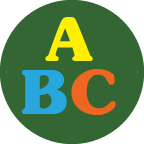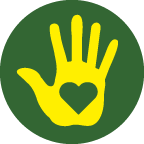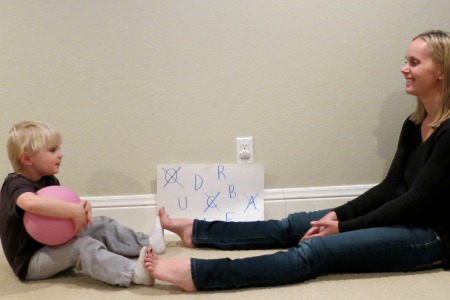O & U
Using a ball to learn letter names and sounds
Instructions

- Listen to this video to learn the sound of "U"
- Write these letters on paper or dry erase board - O, U, D, M, C, R, B, F, A, E
- Sit with a child on the floor, looking at each other with feet touching - making a closed space (so ball cannot roll away)
- Roll a ball to the child while saying a letter name on the dry erase board
- The child rolls the ball back saying sound of that letter (can be either short or long sound for vowels)
- When the child makes the correct sound, let the child find the letter on paper/dry erase board and erase or cross out with an X
- Continue for each letter
Simplify
When rolling ball to a child say the letter name (O) and sound of the letter (o like otter). Now the child rolls the ball back to you repeating letter name and sound. Repeat for each letter and sound.
Extend
When the child knows all of these letter names and sounds, ask him to roll back by saying a word that begins with these letters. For example - o, octopus; u, up; d, daisy; m, mix; c, cat; r, rain; b, boat; f, flower; a, ant; e, earth
QUESTIONS FOR CHILD
Why do we need to learn about letters?
Would you rather eat a meal of okra or octopus and why?
Materials
- dry erase board or paper
- marker
- ball
Curriculum Plan Resources
Skills Focus
- Shape - Rectangle
- Color - Orange
- Number - 1-4 Review
- Alphabet - O, U
- Senses - Sight
- Character Trait - Responsibility
- Target Words - Under, Up, Down, Tall
Monthly Proverb
Yiddish- If each person sweeps in front of his own door the whole street is clean
Did You Know?
"The brain builds itself in response to the child’s experiences. Brain circuits that the child uses in daily life are strengthened. Those that the child doesn’t use fade away. "
National Research Council From Neurons to Neighborhoods, 2000
Books to Read
"AlphaBugs: A Pop Up Alphabet Book"
by David Carter (Activity 1)
"Deep In The Swamp"
by Donna Bateman (Activity 22)
"Head to Toe"
by E. Carle (Activity 10)
"AlphaBugs: A Pop Up Alphabet Book". VIDEO
by David Carter (Activity 1)
"Head to Toe". VIDEO
by Eric Carle (Activity 10)
"Deep in The Swamp". VIDEO
by Donna Bateman (Activity 22)
Music Playlist
"When The Saints Go Marching In"
by Pete Fountain, Album: Do You Know What It Means to Miss New Orleans? (Jazz) (Activity 2)
"Go, Flush, Wash, Dry"
by Martin Kerr, Album: Favorite Songs from the Family Learning House (Children) (Activity 24)
"The Noble Duke of York"
by Susan McRae, Album: Barney’s Song Book - 16 Favourites for Kids (Children) (Activity 15)
"When The Saints Go Marching In" VIDEO
by Pete Fountain (Activity 2)
"The Noble Duke of York" VIDEO
by Barney's Magical Musical Adventure (Activity 15)
"Go, Flush, Wash, Dry" VIDEO
by Martin Kerr, Album: Favorite Songs from the Family Learning House (Children) (Activity 24)
Monthly Materials List
Click Here to view the list!
Fingerplay / Poems / Songs
Sing/Say The Alphabet
(Activity 26 Month 5)
ABCDEFG HIJKLMNOP QRSTUV WXYZ
Now I’ve said my ABC’s, Next time won't you sing with me.




